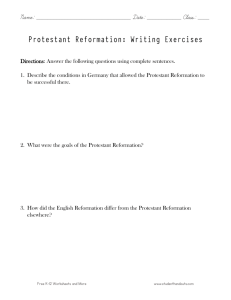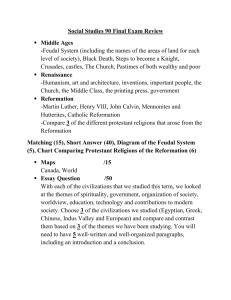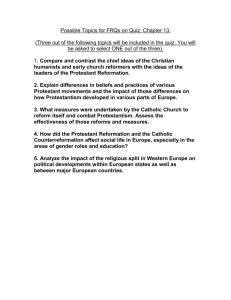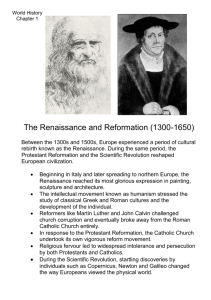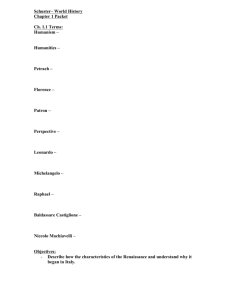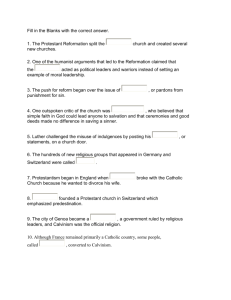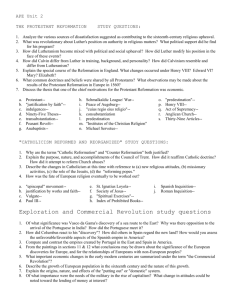AP Euro Reformation Test Prep: Essay Questions & Review
advertisement
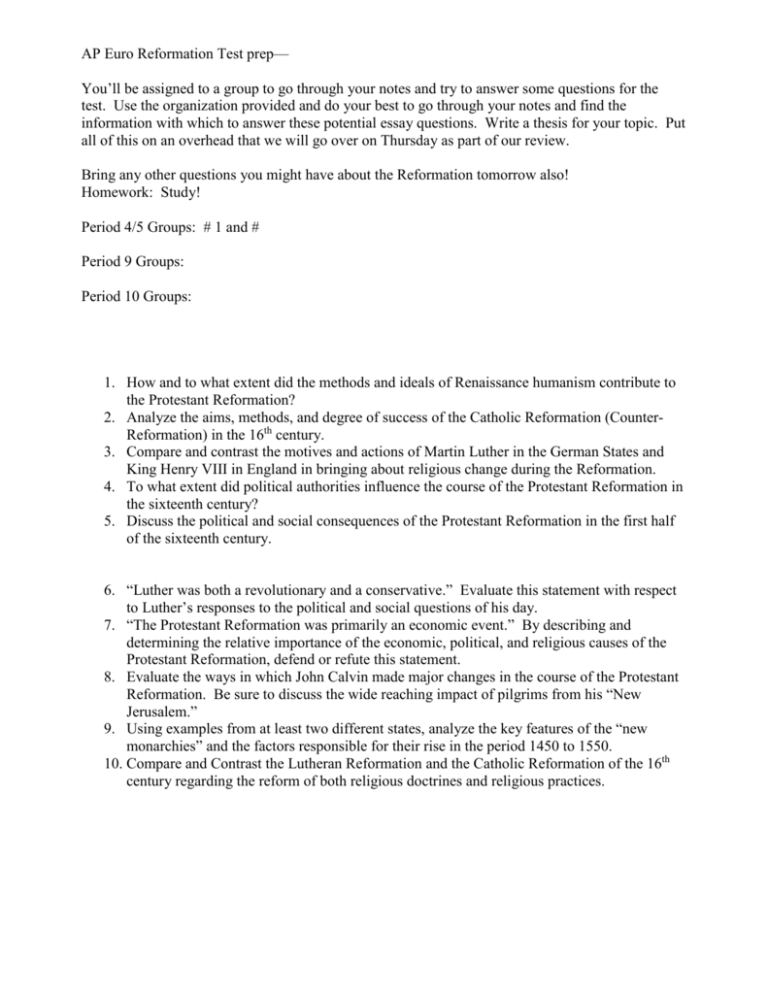
AP Euro Reformation Test prep— You’ll be assigned to a group to go through your notes and try to answer some questions for the test. Use the organization provided and do your best to go through your notes and find the information with which to answer these potential essay questions. Write a thesis for your topic. Put all of this on an overhead that we will go over on Thursday as part of our review. Bring any other questions you might have about the Reformation tomorrow also! Homework: Study! Period 4/5 Groups: # 1 and # Period 9 Groups: Period 10 Groups: 1. How and to what extent did the methods and ideals of Renaissance humanism contribute to the Protestant Reformation? 2. Analyze the aims, methods, and degree of success of the Catholic Reformation (CounterReformation) in the 16th century. 3. Compare and contrast the motives and actions of Martin Luther in the German States and King Henry VIII in England in bringing about religious change during the Reformation. 4. To what extent did political authorities influence the course of the Protestant Reformation in the sixteenth century? 5. Discuss the political and social consequences of the Protestant Reformation in the first half of the sixteenth century. 6. “Luther was both a revolutionary and a conservative.” Evaluate this statement with respect to Luther’s responses to the political and social questions of his day. 7. “The Protestant Reformation was primarily an economic event.” By describing and determining the relative importance of the economic, political, and religious causes of the Protestant Reformation, defend or refute this statement. 8. Evaluate the ways in which John Calvin made major changes in the course of the Protestant Reformation. Be sure to discuss the wide reaching impact of pilgrims from his “New Jerusalem.” 9. Using examples from at least two different states, analyze the key features of the “new monarchies” and the factors responsible for their rise in the period 1450 to 1550. 10. Compare and Contrast the Lutheran Reformation and the Catholic Reformation of the 16th century regarding the reform of both religious doctrines and religious practices.
